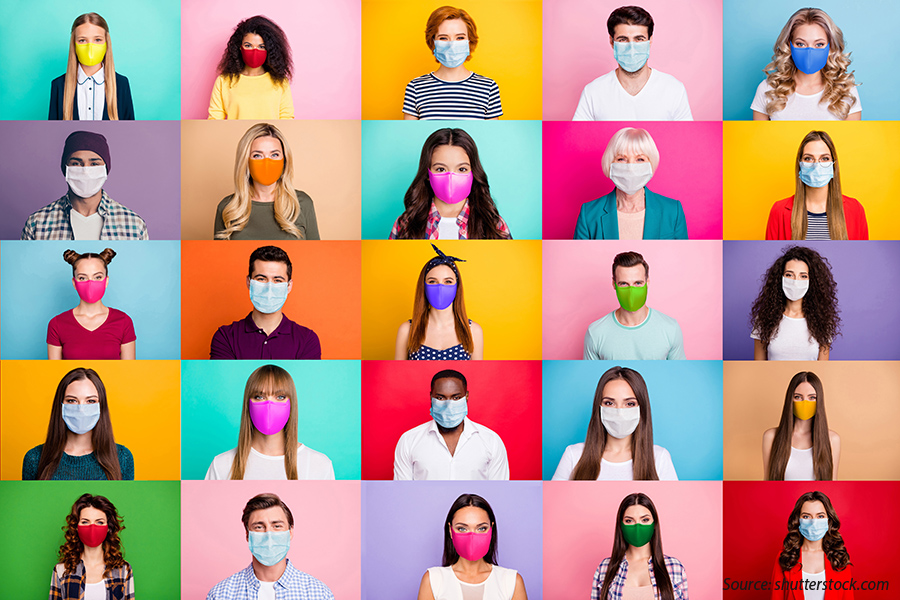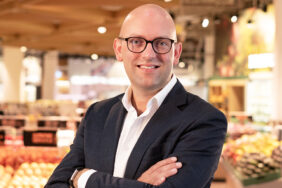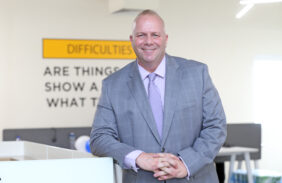
There couldn’t be a better way to end the dreadful year that 2020 has been than with the news of the deployment of the much-awaited vaccines. When Dubai’s Supreme Committee of Crisis and Disaster Management started an extensive Covid-19 vaccination program in December using the jab developed by Pfizer-BioNTech, which are being provided free of charge, people started becoming optimistic again of a better, brighter, and virus-free new year.
2020 was perhaps the worst year for a number of industries and firms. Hotels and restaurants, transport and tourism, events and entertainment struggled as demand sharply dived to their lowest levels. Unemployment levels have also seen a record high across various verticals. However, there were also some sectors that witnessed “pandemic profits”, for instance, the top 100 stock market winners have added more than $3 trillion to their market value since the pandemic. Amazon and Walmart together earned an extra $10.7 billion over 2019’s profits during (and largely because of) the pandemic—a stunning 56% increase.
But since the news of Pfizer and Moderna vaccines went public, there was a little hiccup in the shares of those companies that saw an uptick during the peak of the pandemic. Amazon shares tumbled down 5.1% after news of the Pfizer vaccine, Zoom Video saw a 17.4% decline as investors anticipated a return to the office, and Netflix shares fell by 8.6%. So does this mean there will be a role reversal for when the vaccine is finally deployed? In other words, this year, are we going to be disposing off masks that have become the most important accessory of 2020?
The quick answer to that question, according to most experts, is no. Masks are going to continue being in use long after the vaccines are deployed and made available to people for a number of reasons. Why?
16 billion – that’s the number of doses of the vaccine that manufacturers are expected to produce. The world hasn’t produced 1/10th of that number ever, so the delivery of these vaccines are going to take a lot more time. Secondly, there is still a hesitation in acceptance among people especially for reasons ranging from inconvenience to trust and ineffectiveness. Changing mindsets and mentalities is a more arduous task than one might imagine. And thirdly, one thing that Covid-19 has taught us is that masks are actually beneficial not just to protect us from the novel coronavirus but any kind of flu. How many people you know have skipped their seasonal flu and fever because they have been wearing masks and using sanitisers this year?
For grocery, supermarket, and hypermarket retailers, 2020 has been a rather interesting year. With people panic buying in the initial phases of the pandemic that overwhelmed most supermarkets and burdened supply chains, to the lockdown phase when grocers were forced to accelerate their shift to e-commerce to situations stabilizing and some grocers recording record profits, it has been quite a roller coaster for grocers in the region. In the UAE, the e-grocery market alone has grown by 300% in the third quarter of this year and is now worth $1.1 billion while Saudi Arabia’s market has grown by 500% to $530 million.
While the demand for food was on the rise and consumption habits were changing, many supermarkets decided to stock up on other items that saw a sudden surge in demand as well. Tom Harvey, Commercial Manager at Spinneys explains how the hygiene and safety categories contributed to the success of Spinney’s business this year.

“If we look back to March, we are looking at well over 2000% increase in demand for things like sanitizers. We weren’t selling face masks before but it has become a steady revenue stream for us this year”, he said.
“At the start, the demand for these products was so great that it was almost the case of finding whatever brands was available in order to have some stock for sale for our customers. There was quite an expansion in the number of brands. As things started to normalize the number of brands has contracted and we have looked at having fewer brands like Dettol and Lifebuoy”, he added.
But are Spinneys foreseeing a fall in demand next year? “Yes, by a small amount”, replied Harvey.
“But government policy and legislation will also play a significant part in that. At the moment, there is no indication from the government that they will change the rules on where and how we wear face masks so the demand will continue”, he added.
Even if there is a drop in demand, according to Harvey, the profitability of Spinneys isn’t going to be affected as they are predominantly a food business, and that is a market that saw a surge during the pandemic and will continue to see a surge even after it.
“There is a broader shift and greater awareness on what we consume. We see massive increases in sales of multivitamins and supplements, and organic substances that our customers consume and some of those shifts will continue”, he said.
“The amount of eating at home versus at restaurants will also continue – favouring my industry over the restaurant and hospitality industry. We saw the same trend during the financial crash in 2008 and it was quite a long time before restaurants recovered their volume”.
Speaking of trends, one clichéd Covid phrase that was used to the point of saturation this year was “new normal”. However, given human tendencies and behavioural patterns, the question that follows this phrase is ‘how fragile is this new normal?’ Are people going to go back to their old ways and habits and rip off the masks, dump the sanitizers in the bin and forget all about social distancing for good once Covid is behind us? The last one, maybe. But masks and sanitisers are very much here to stay.
Psyche and psychology
Let’s go back in time to 1918-20 when the Spanish Flu hit. One-third of the world’s population (500 million people) were infected and an estimated 20 – 50 million lost their lives. Apart from the impact it had on people’s health and the world’s economy, it also impacted people psychologically. “My parents were children when the Spanish Flu hit and as a result, they were the most germophobic parents in my group compared to the other parents who didn’t live through the Spanish Flu”, said James Michael Laffery, CEO of Fine Hygienic Holding.

Fine Hygienic Holding, which was started 63 years back by a Palestinian refugee in Jordan, is a wellness company that dealt in paper sanitisation and wellness products well before the pandemic. Needless to say, 2020 was a record year in all of the key metrics (top and bottom line) for the company.
“If we look at the disinfection space, there was the pre-covid market size that stood at, say 100, peak Covid at 300, and then the post-Covid period, which in my view would be 150-200. We will reach herd immunity one way or the other, either through a vaccine or through continued infection or a combination of the two”, he said, “but that doesn’t necessarily mean that we will immediately discard the masks and sanitisers overnight”.
Lafferty predicts the market sizes for hygiene products to be permanently elevated, not just for the next year, but for the next decades. Asian countries, especially Japan that wears 300 million masks on average every year, could be taken as a proven case study to validate this.
“Asia was hit by SARS (2002-2004) when the rest of the world was not. SARS only infected 83,000 people, almost all of them were in Asia and the death rate was significantly higher for SARS (over 10%) than Covid (2%). So mask-wearing was adopted during the SARS crisis but never really stopped even after”, he said.
Miroslav Kafedzhiev, vice president & general manager, Honeywell Safety & Productivity Solutions echoes the same sentiments and believes that the demand for masks and hygiene products aren’t going to drop for the next three, six, or even twelve months.
Improvise. Adapt. Overcome
Honeywell’s Safety and Productivity Solutions sales for the third quarter were up 8% driven by personal protective equipment growth. Orders were up double-digits year-over-year for the fourth straight quarter, driven by approximately 150% personal protective equipment orders growth, and backlog remained at a record high.
From mainly catering to the needs of the government and frontline operators and focusing on the industrial distribution of safety protection equipment including protective clothing, footwear, first aid, etc., Honeywell’s business model too saw a shift this year.
![]()
“As the demand from the wider populous started increasing, we started engaging with channel partners. So now we deploy our masks at noon.com. We moved from our traditional distribution channels like industrial distribution to general channel coverage including e-commerce”, he said.
“We invested in multiple arms. We had an existing manufacturing facility in China. We significantly ramped up the capacity there. We established a manufacturing facility in the UAE and ramped up an existing manufacturing facility in Tunisia. We opened an additional factory in the UK and built two factories in the US. We also set up a production line in India”.
The level of expansion and investment they are putting into the safety and protection segment of their business shows that their research points towards sustainable growth in this field of operation. However, Kafedzhiev believes that the future is way beyond Personal Protective Equipment. The underlying trend is a progressive focus on healthcare and wellness and that is where the opportunity lies.
Within the medical sector itself, there was a steady shift happening from sick-care to healthcare, where people were being encouraged to maintain healthy lifestyles so they don’t fall ill at all, instead of visiting a doctor and getting treated after they fall sick. This became more important in 2020 where people made a conscious effort to improve their immunities, follow a balanced diet, and take all possible precautions against getting sick at all.
Traditional retailers have also seen an opportunity in this space after having realised how the trend in a lot of verticals is going to be led by people wanting to lead healthier lives. Apart from global examples of Amazon buying Whole Foods, a grocer that began as a health food store or Walmart buying PillPack, an online pharmacy startup or CVS buying Aetna, bringing together a retail chain with nearly 10,000 stores and a major national health insurer, local retailers are jumping on the bandwagon as well.
From Spinneys predicting a continued rise in demand for health supplements and organic foods to Fine Hygienic Holding predicting the growth and evolution of masks and a move towards leading more hygienic lifestyles and Honeywell increasing investments and R&D in the whole healthcare and wellness segment – the big leagues from different sectors are adapting to the healthcare trends and this speaks volumes about what a post-covid future is going to look like.
Masks won’t be binned, they will evolve
“When Covid-19 started peaking its head above the water in January, there were a few facts that were laid out. First, this virus has an attraction to the human respiratory tract that is 10 times greater than SARS and is much more communicable than SARS. Second, if 50,000 people got it in Wuhan, they didn’t get it from doorknobs, they got it from the air. And if it is airborne, that means the number one thing you need to do is wear a mask – which is even more important than washing hands, etc. “, said James Lafferty.
“Most masks we had were filtration masks which means they blocked the virus from coming in. An N95 masks can only block a particle down to 0.3 microns. The coronavirus is 0.125, so it’s 1/3rd the size of the filter. So you need a mask that has anti-viral treatment inside the mask”, he said.
Unfortunately, the masks that were being supplied and used the most were the disposable surgical masks that were harmful to the environment, weren’t effective against the coronavirus, and was not even the most cost-efficient option out there.
“Most of the population today wears the surgical masks that don’t protect anyone. It only stops droplets, but these masks neither have filtration for molecules nor allow easy passage of the air. Surgical masks have seen the highest spike in demand but it doesn’t do any filtration of air and doesn’t stop what you exhale or inhale”, said Miroslav Kafedzhiev.
Even the masks with valves only protect the person wearing the mask, but doesn’t protect anyone from you as when you exhale all the air goes out.
“Over the last few months we have seen that a lot of people are moving towards multi-use masks rather than single-use masks and that may continue”, said Tom Harvey.
Once Covid is over, we are also likely to see masks getting more and more high-tech with replaceable cartridges, anti-viral technologies and so on. Fashion masks are also gaining popularity with many SMEs and big fashion retailers like Louis Vuitton, Adidas, Gap etc. selling masks with their brands on them.
In a post-Covid world, although hygiene products are very much going to be a part of our lives, only the producers, manufacturers and retailers doing it right will survive.
“No new categories came up during Covid, it’s just that existing categories got bigger. So all the categories are going to survive but not all the companies competing in those categories are going to survive. The companies that have done a very basic “me too” product that have no distinctiveness won’t have a real reason to stay in the game. On the business of disinfection products, if companies are making run-of-the-mill alcohol-based products that are barely effective, they are not going to survive”, concluded Lafferty.
You must be logged in to post a comment.